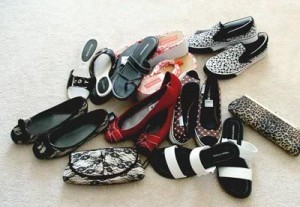 First it was just talk. “I think I’m going to sell the house,” she said. And I didn’t really believe her. We were sitting in Cafe Regular Nord and I thought to myself: Why would you move away from here? What about your friends, the brownstone, the park, the cafes and bars where we’ve been having intense conversations for more than a decade.
First it was just talk. “I think I’m going to sell the house,” she said. And I didn’t really believe her. We were sitting in Cafe Regular Nord and I thought to myself: Why would you move away from here? What about your friends, the brownstone, the park, the cafes and bars where we’ve been having intense conversations for more than a decade.
What could be better than here? I wondered in my Brooklyn-centric way.
Over time it became obvious that she was serious—and motivated. She was eager to move and she had her reasons. Good ones. She found a realtor, she touched up the house—a little paint here, a little staging there. She scheduled an open house; there was a buyer.
It happened quickly. Elation. Nerves. Excitement. Anxiety. The contract was signed. Then, she had to find a new place to live, in a new town, a new state, more than two hours away.
As the weeks passed, I knew that her excitement was peppered with fear. I saw that her immense energy and bravery was partial cover for the pain of letting go. It wasn’t easy to relinquish the life she’s known for more than twenty years: selling the house where she raised her 16-year-old daughter, leaving the block where she pushed a McClaren stroller, where she helped plan an annual autumn block party, where she walked her dogs, where she had many friends and familiar faces.
She spent weeks going through her stuff, giving and throwing it away. There were trips to Housing Works Thrift Shop, there were stoop sales, there was a big box of things on the curb that said “free”.
As D-day approached, the pace of packing increased By Sunday night, much had been done, but there was still much to do. Indeed, the movers were arriving at 8:30 in the morning. There was mayhem on her parlor floor. Dogs, friends, friends of friends, helpers. Packing, eating, drinking, barking. Objects disappeared into boxes. Bottles of olive oil, a Cuisinart, Chinese take-out containers, silverware…
Quietly, I went upstairs to pack her shoes. It seemed like a helpful thing to do. Alone in her room, I placed her high heels, pumps, sandals, boots, flip flops, Danskos, Birkenstocks and sneakers into a U-Haul box and felt the weight of my imminent loss with a lump in my throat, a pain in my chest. She really was moving on from here with her furniture, her books, her shoes—and my life was going to be different, too.
As she steps into her new life, those shoes will be with her, so too her memories of life in Park Slope, a place she won’t soon forget. Nor will I forget the friendship, the fun, the intensity, the endless conversation, the things we did together.
Monday afternoon, the moving truck was packed, the house empty, the movers set to drive away, I noticed that she had forgotten to pack something.
“What about that? ” I said pointing at the huge, ornate, gold framed mirror hanging above the mantle in the dining room. A look of disbelief, frustration then lightness crossed her face.
“You once said you liked it. So I’m going to give it to you,” she said “You can think of me when you look in it.” We both laughed. It was a funny thing to say, but also touching. I was deeply moved by her generosity.
That mirror, now in my apartment, leans against the armoire until we figure out how to hang it.
“You can think of me when you look in it,” she’d said.
And I do.
